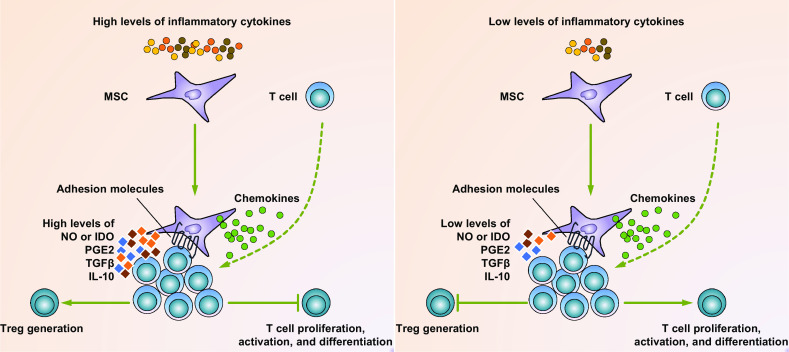Fig. 2.

MSC plasticity in immuno-modulation. In response to high levels of proinflammatory cytokines that exist in the acute phase of inflammatory diseases, MSCs are licensed to secrete large amounts of immuno-suppressive factors, such as NO (mice) or IDO (humans), PGE2, TGFβ, and IL-10. In addition, these MSCs also produce various chemokines and express adhesion molecules that are responsible for T-cell recruitment and keeping T cells in close proximity with them. As a result, T cells are suppressed in proliferation, activation, and differentiation. Moreover, CD4+CD25+Foxp3+ Tregs can also be generated by these suppressive MSCs (left panel). In response to low levels of proinflammatory cytokines that exist in various chronic diseases, MSCs still produce considerable amounts of chemokines and adhesion molecules that recruit T cells in close proximity with them. However, they produce only low levels of the immuno-suppressive factors. Thus, the recruited T cells are unchecked and become activated (right panel)
